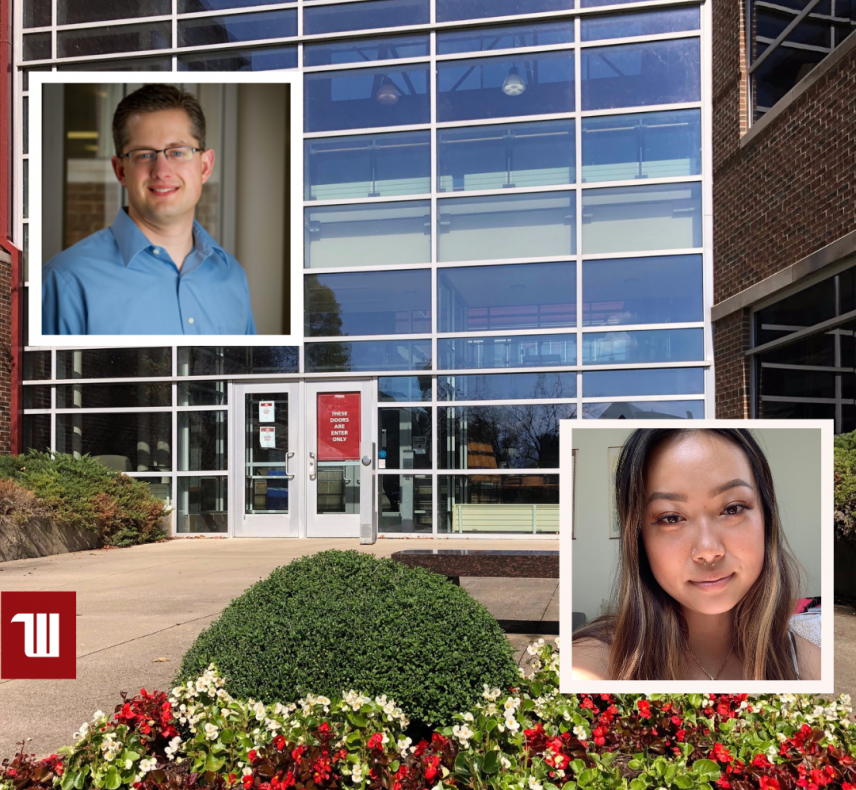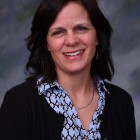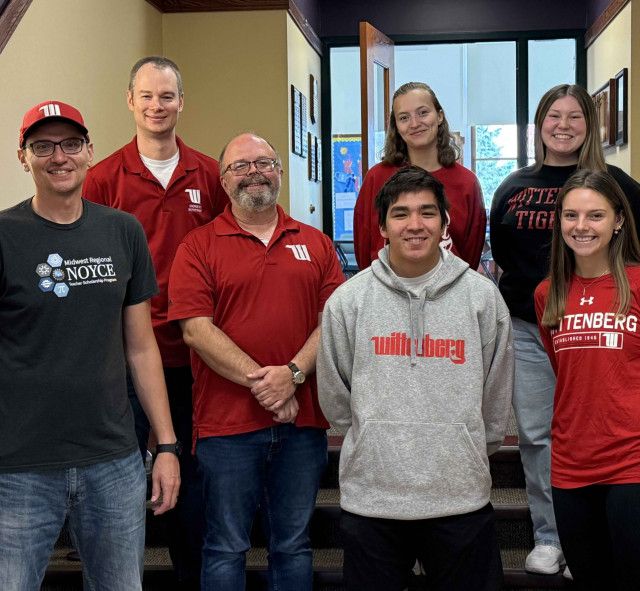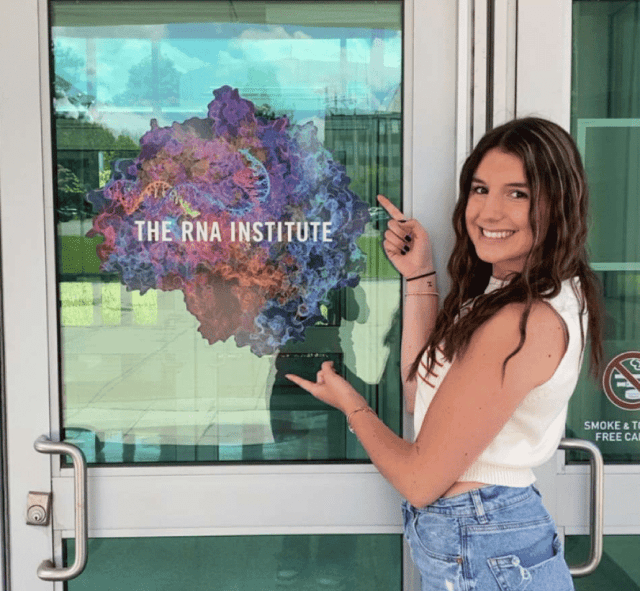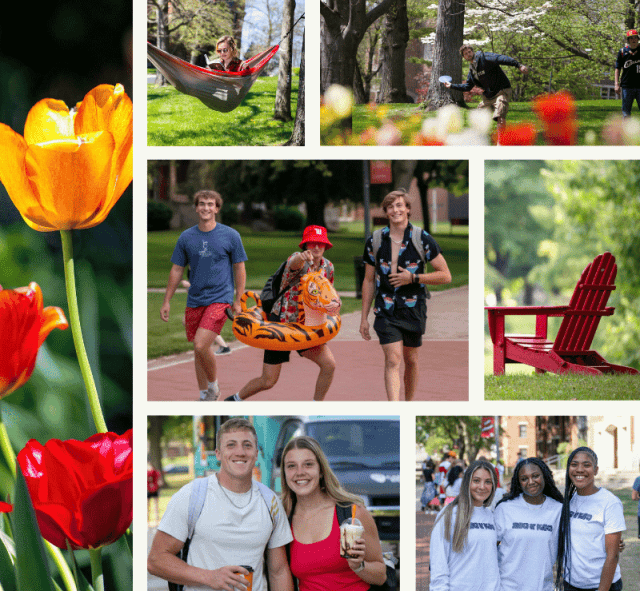When the coronavirus pandemic forced Wittenberg University to abruptly switch to online classes last spring, Professor and Chair of Chemistry Justin Houseknecht seized the opportunity to investigate how the transition to remote instruction would impact learning in an organic chemistry class. With the help of biochemistry and molecular biology major Lucy Bates, class of 2022, the pair co-authored a manuscript presenting the results. The study was recently published online in a special issue of the Journal of Chemical Education.
A proponent of active, hands-on learning, Houseknecht regularly collects data on the effectiveness of the Just-in-Time Teaching (JiTT) and collaborative learning methods he uses in his organic chemistry classes. He often engages students in the research process; Bates was scheduled to spend the summer in-person helping Houseknecht analyze data related to metacognitive and self-efficacy skills.
However, the pivot from in-person teaching to remote instruction presented an opportunity to add a unique component to Bates’ summer research project: to study if student learning and behavior changed during the spring semester.
“The first part of this project was the transition to remote learning and assessment where student scores in Organic II were compared before and after the switch to learning completely online during quarantine,” said Bates, who received funding from the chemistry department’s Virginia Ellis Franta Fund to support her summer research. “There was no significant difference in students' ability to master course material even with a different mode of learning and assessment.”
“Wittenberg students are fantastic,” said Houseknecht, referencing the results. “They roll with the punches.”
Houseknecht and Bates’ co-authored article, “Transition to Remote Instruction Using Hybrid Just-in-Time Teaching, Collaborative Learning, and Specifications Grading for Organic Chemistry 2,” was published as part of the Special Issue: Insights Gained While Teaching Chemistry in the Time of COVID-19.
“This research is useful for chemical education and the large potential for online learning during a world pandemic,” said Bates, who hails from Brownsburg, Indiana.
Bates also spent part of the summer analyzing data collected from Organic Chemistry I.
“We looked at the potential growth in metacognitive and self-efficacy skills by using the Motivated Strategies for Learning Questionnaire at the beginning and end of the semester,” she said. “We concluded that to find significant growth, we would need more data and a larger sample population. Further research could be done.”
Bates learned some valuable skills during her summer of research, including a new programming language for statistical computing.
“I learned how to code using RStudio, do computational work, write professional and publishable papers, and I learned how to work efficiently by myself on a large research project.”
Houseknecht offered high praise of Bates’ work ethic, particularly her ability to learn RStudio on her own when training courses weren’t available because of COVID-19.
“She is an incredibly motivated, enthusiastic student, very detail-focused,” he said. “She sees a goal and goes after it. She took a lot of initiative to figure out how to do the work. She definitely earned her authorship.”
“Wittenberg has helped me prepare for my future by giving me research opportunities and professors that care about the success of all students,” said Bates, who serves as treasurer of the Marine Science Club and is a member of the fishing club and Outdoors Club. She hopes to pursue a master’s in molecular biology after graduating from Wittenberg.


